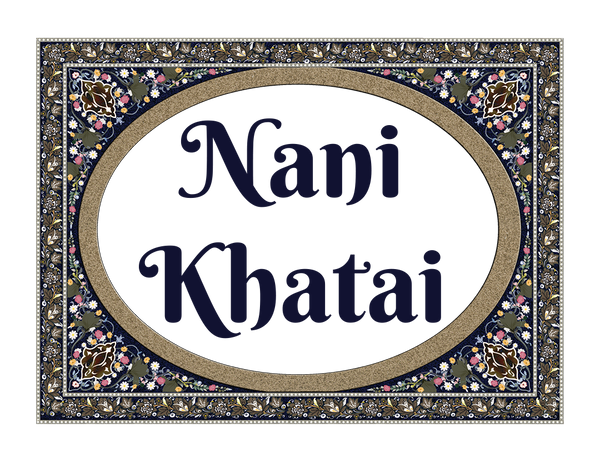
Origins of Nan Khatai
Nan Khatai is a type of cookie that originated in the Indian subcontinent. Its name is derived from the Persian word "naan" which means bread and "khatai" which means biscuit.
It is believed that nan khatais originated in the Indian subcontinent during the Mughal era. Sometime in the 16th century, a Dutch couple had set up a bakery making biscuits and bread catering to local Dutch residents. The Dutch and Indians were important spice traders.
Over time, as the Dutch started leaving India, they handled it over to a Parsi entrepreneur, Faramji Pestonji Dotivala. The local Indians did not much like the flavor of the Dutch breads. In order to save the bakery, Mr. Dotivala started selling the old, dry bread and biscuits at cheap prices. This became popular and saved the bakery! Being the entrepreneur and experimenter that he was, Mr. Dotivala started drying the bread and creating different versions, including the now famous nan khatai.
Over time, nan khatais became a popular treat throughout the region. Today, nan khatais are enjoyed not just in the Indian subcontinent, but also in other parts of the world. Its popularity has led to the creation of many variations of the cookie, including pistachio nan khatai, and rosewater nan khatai (Pssst… contact us for a custom order).
In summary, nan khatai is a beloved treat with a rich history that has evolved over time. It is a testament to it’s simple yet sophisticated taste and texture, and the region's love of sweets and the creativity of its people.

General Inquiries
For any questions, concerns, or to become a new reseller, please use this form.


Wholesale Order
If you are an existing reseller, and want to place a new wholesale order, please use the form here.

Explore Our Products
-

Gift Giving and Special Occasions
Wow your loved ones with our crunchy nan khatais, individually wrapped in...
-

Personal Consumption
Stock up your pantry with our delicious khatais. They will always come...
-

Restaurants and Retail
Add our delicious khatais to your store. They will be sure to...



